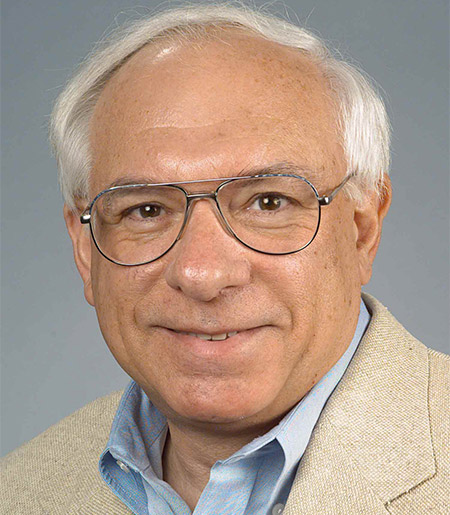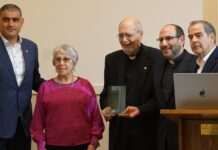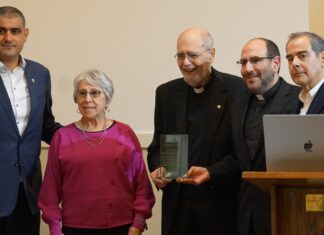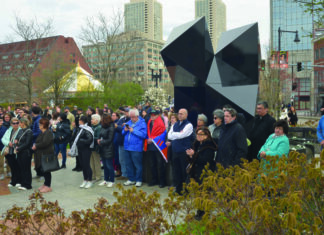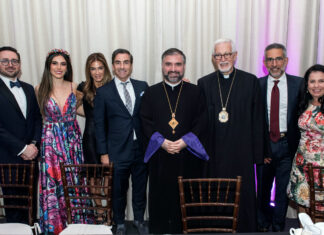ITHACA, N.Y. — Yervant Terzian, the Tish Distinguished University Professor Emeritus in the Department of Astronomy at Cornell University, died on November 25, after a long illness.
He made major contributions to the field of astronomy as a researcher, an inspired teacher and a gifted administrator. He had a tremendous capability to infect both students and everyone he knew or met with the excitement for astronomy that he personally felt.
Terzian was born on Thursday, February 9, 1939 in Alexandria, Egypt. It was a cool early spring day, with rain transitioning from rain to drizzle and cumulus clouds against the Mediterranean sky. He was the son of a small merchant, Bedros Terzian, who as a child had fled the Armenian Genocide, and his wife, Maria (Kyriakaki) Terzian, the daughter of a fisherman from one of the smallest and most remote Greek islands. By dint of his intelligence, determination, skillfulness and a formidable sense of duty and purpose, he lived an improbable life. Born into a family of modest means, an ethnic minority in an occupied former colony of a declining empire, he channeled his intense passion for knowledge and education to become a leader in the field of radio astronomy and the broader field of astrophysics, and to build up Cornell University’s strong but small Astronomy Department into one of the most highly regarded in the world.
Yervant spent his youth in Alexandria and Cairo. At a young age he determined to become an astronomer and walked from his home on Ibrahim Pasha Road to the Cairo Observatory to seek the director’s advice. A few years later, he learned English (his fifth language) to read the astronomy books in the American Library of Cairo; the librarian, impressed by his enthusiasm, bought new books for him to read when he exhausted what their initial holdings. At 17 he was admitted to the American University in Cairo, where he earned an undergraduate degree in physics in 1960. Overcoming the bureaucratic obstacles that were placed on ethnic minorities following the fall of the King Farouk and the Egyptian Revolution of 1952, he entered the PhD program in astrophysics at Indiana University in Bloomington, which he completed in 1965. His doctoral research, conducted at the National Radio Astronomy Observatory in West Virginia, led to a lifetime of contributions to our understanding of the interstellar medium, the gas and dust between the stars. In early 1965 he joined the scientific staff of the recently built, and Cornell University managed, Arecibo Observatory in Puerto Rico, the beginning of a lifelong association with Cornell.
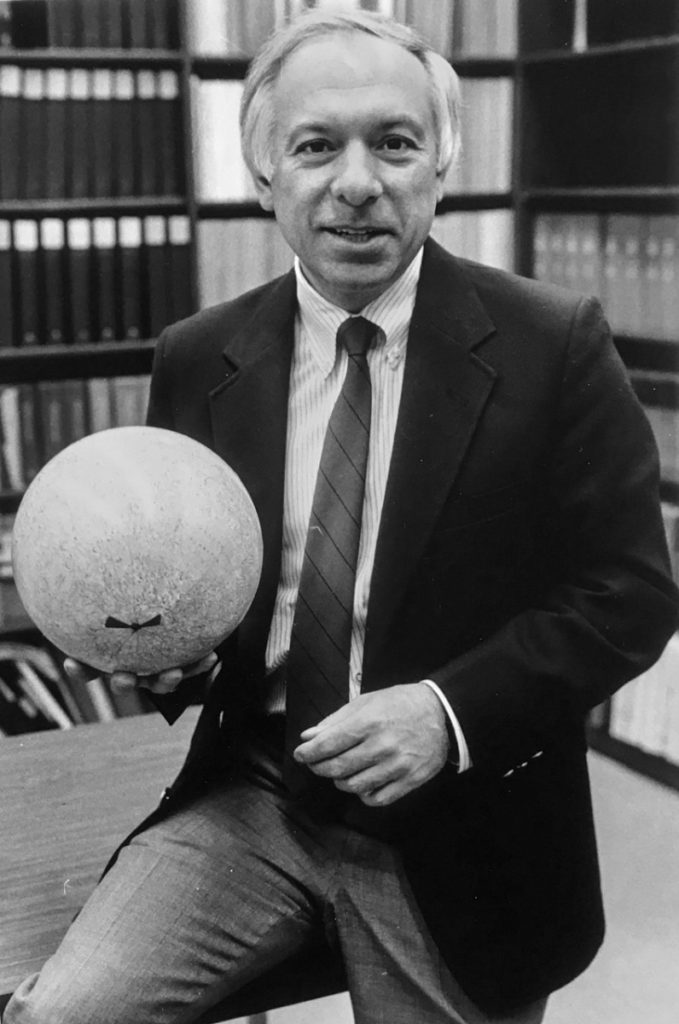
In 1967 Terzian moved to Cornell’s Ithaca, NY, campus as assistant professor of astronomy, the start of a distinguished teaching career for which in 1984 he received the Clark Distinguished Award for Excellence in Teaching. Over the years he supervised many PhD students and authored, or co-authored, over 235 scientific publications and edited seven books including Carl Sagan’s Universe. In 1979 he was appointed Chair of the Astronomy Department, a position he held for 20 years, a testament to his vision, his diplomatic skills and his strong sense of duty towards the University, his colleagues and his students. A tireless champion for scientific literacy, he engaged regularly with public audiences regarding important discoveries about planets, stars, black holes, and galaxies. While Chair, he founded the Friends of Astronomy (FoA), a group of Cornell related alumni who shared Yervant’s enthusiasm for astronomy and who have been, and continue to be, very supportive of Cornell’s Astronomy Department. However, it was in the broader area of astronomy that he made his major contributions. He was a scientific editor of the Astrophysical Journal for 10 years starting in 1989. In 1996 he was appointed director of the NASA-funded New York Space Grant Consortium for Science Education and, later, director of the National Space Grant Consortium. In 2002 he was elected chair of the US Consortium of Universities and Institutes involved with the international project to build the next generation of large radio telescopes, the Square Kilometer Array, and chaired the site selection committee for the telescope.
Profoundly proud and thankful for all the opportunities that were attendant to becoming an American citizen, he served his country as a scientist whenever the occasion arose. Also proud and loyal to his Armenian and Greek heritage, he sought out or created opportunities to assist and collaborate with scientists from both nations. In the wake of the breakup of the Soviet Union and the loss of much of the funding for scientists in Armenia, Yervant and colleagues created the very successful Armenian National Science and Education Fund, which Yervant chaired, to raise money to support Armenian scientists based on peer reviewed proposals. He was a founding member of the Hellenic Astronomical Society and the Armenian Astronomical Society (1993 and 2001, respectively).



